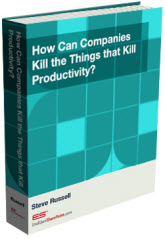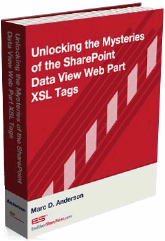JQuery for Everyone: Live Events vs. AOP
Live Events, new in jQuery 1.3, give us another tool when dealing with the SP user interface.
Clicking, moving the mouse, and pressing keys all trigger events in the web browser. In JavaScript, we try to capture these events, using event listeners that trigger interactions to control the user experience. In my previous examples, like loadTip-AOP and Preview Pane, I used event helpers to bind listeners to individual DOM elements:
$("a[href*='DispForm.aspx']").mouseenter(function(event){console.log(event);});
Try this: Put jQuery on your page. Run the code above in your Firebug console then move your mouse over a linked Item. On the left side, click the new event object. What type of information does an event hold?
When we use this technique, ExpGroupRenderData, our old nemesis, forces us to bind new events to the new DOM elements (hopefully without binding additional events to existing ones). I used two different ways to trigger this “rebinding” process: rewrite ExpGroupRenderData to include the binding function and AOP to create a sort of callback function.
How Live Events Are Better
As the number of elements on the page increases, the performance of this technique degrades. Event delegation, using live events, attaches the listener to a “container” element so the rebinding process is no longer needed. Additionally, since only the containers need listeners, the initial binding process performs better.
Trade-offs
As of this writing, jQuery 1.3 does not support live events for blur, focus, mouseenter, mouseleave, change, and submit. With a traditional .bind() approach, we can easily manage our 1:1 ratio of listeners to DOM elements. Using event delegation, we must take special care to avoid firing multiple, unwanted events.
Click “Read more…” if you want to see the hands-on experiment.
Hands on
Working with Live Events forces us to work from “most specific” to “most general” with our selectors. For example, open a page with more than one web part pointing to list Items (Tasks, Calendar, etc.). Place jQuery on the page (either a CEWP or the jQueryify bookmarklet) and run the following code in the Firebug console:
$("a[href*='DispForm.aspx']").mouseenter(function(event){
console.log("1:"+event.target);
});
$("div#WebPartWPQ1 a[href*='DispForm.aspx']").mouseenter(function(event){
console.log("2:"+event.target);
});
When you mouse over your links you will see either one or two console messages (depending on whether or not the target was inside web part 1). Let’s suppose, you only want one of these to fire. Refresh the page, add the .stopImmediatePropagation() method to our event and try again.
[/sourcecode]
$("a[href*='DispForm.aspx']").mouseenter(function(event){
console.log("1:"+event.target);
event.stopImmediatePropagation();
});
$("div#WebPartWPQ1 a[href*='DispForm.aspx']").mouseenter(function(event){
console.log("2:"+event.target);
});
[sourcecode lang="xml"]
What happened? Well, we’re only seeing one console message but we never see the second function fire, even for links in web part 1. Because our selectors overlap, to achieve the desired results, we have to reverse the order so the browser processes our most specific selector first and stops propagation (the effect of bubbling the event up through the DOM).
[/sourcecode]
$("div#WebPartWPQ1 a[href*='DispForm.aspx']").mouseenter(function(event){
console.log("2:"+event.target);
event.stopImmediatePropagation();
});
$("a[href*='DispForm.aspx']").mouseenter(function(event){
console.log("1:"+event.target);
});
[sourcecode lang="xml"]
Now we get message 2 for our web part 1 links and message 1 for all others.
Conclusion
Live events represent a great option for managing new UI interactions in SharePoint, especially when working with a changing DOM. However, the trade-offs require us to plan and test more to understand where our selectors overlap.
- JQuery for Everyone: Accordion Left Nav
- JQuery for Everyone: Print (Any) Web Part
- JQuery for Everyone: HTML Calculated Column
- JQuery for Everyone: Dressing-up Links Pt1
- JQuery for Everyone: Dressing-up Links Pt2
- JQuery for Everyone: Dressing-up Links Pt3
- JQuery for Everyone: Cleaning Windows Pt1
- JQuery for Everyone: Cleaning Windows Pt2
- JQuery for Everyone: Fixing the Gantt View
- JQuery for Everyone: Dynamically Sizing Excel Web Parts
- JQuery for Everyone: Manually Resizing Web Parts
- JQuery for Everyone: Total Calculated Columns
- JQuery for Everyone: Total of Time Differences
- JQuery for Everyone: Fixing Configured Web Part Height
- JQuery for Everyone: Expand/Collapse All Groups
- JQuery for Everyone: Preview Pane for Multiple Lists
- JQuery for Everyone: Preview Pane for Calendar View
- JQuery for Everyone: Degrading Dynamic Script Loader
- JQuery for Everyone: Force Checkout
- JQuery for Everyone: Replacing [Today]
- JQuery for Everyone: Whether They Want It Or Not
- JQuery for Everyone: Linking the Attachment Icon
- JQuery for Everyone: Aspect-Oriented Programming with jQuery
- JQuery for Everyone: AOP in Action - loadTip Gone Wild
- JQuery for Everyone: Wiki Outbound Links
- JQuery for Everyone: Collapse Text in List View
- JQuery for Everyone: AOP in Action - Clone List Header
- JQuery for Everyone: $.grep and calcHTML Revisited
- JQuery for Everyone: Evolution of the Preview
- JQuery for Everyone: Create a Client-Side Object Model
- JQuery for Everyone: Print (Any) Web Part(s) Plugin
- JQuery for Everyone: Minimal AOP and Elegant Modularity
- JQuery for Everyone: Cookies and Plugins
- JQuery for Everyone: Live Events vs. AOP
- JQuery for Everyone: Live Preview Pane
- JQuery for Everyone: Pre-populate Form Fields
- JQuery for Everyone: Get XML List Data with OWSSVR.DLL (RPC)
- Use Firebug in IE
- JQuery for Everyone: Extending OWS API for Calculated Columns
- JQuery for Everyone: Accordion Left-nav with Cookies Speed Test
- JQuery for Everyone: Email a List of People with OWS
- JQuery for Everyone: Faster than Document.Ready
- jQuery for Everyone: Collapse or Prepopulate Form Fields
- jQuery for Everyone: Hourly Summary Web Part
- jQuery for Everyone: "Read More..." On a Blog Site
- jQuery for Everyone: Slick Speed Test
- jQuery for Everyone: The SharePoint Game Changer
- JQuery For Everyone: Live LoadTip











 on
on